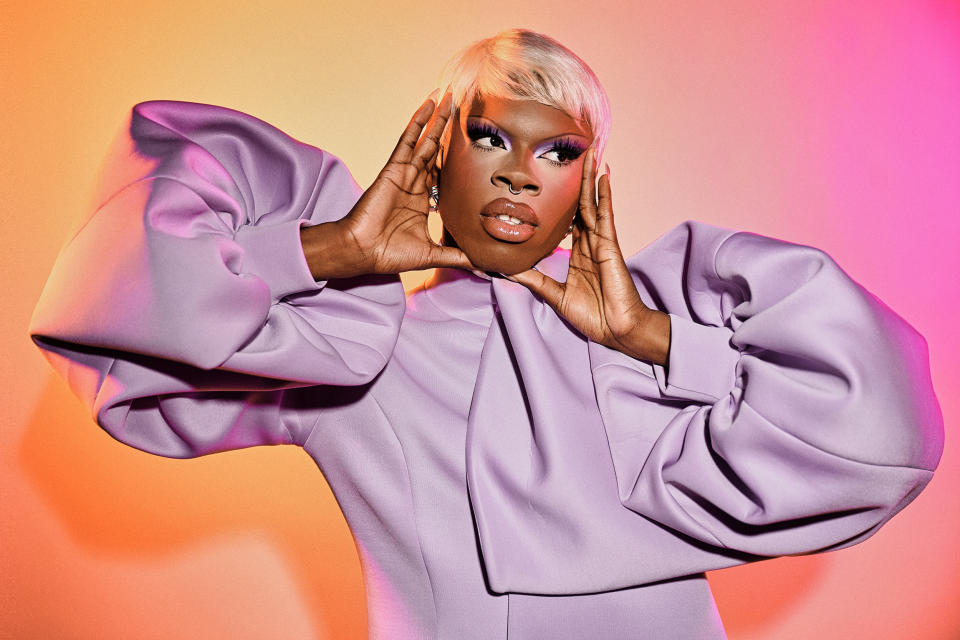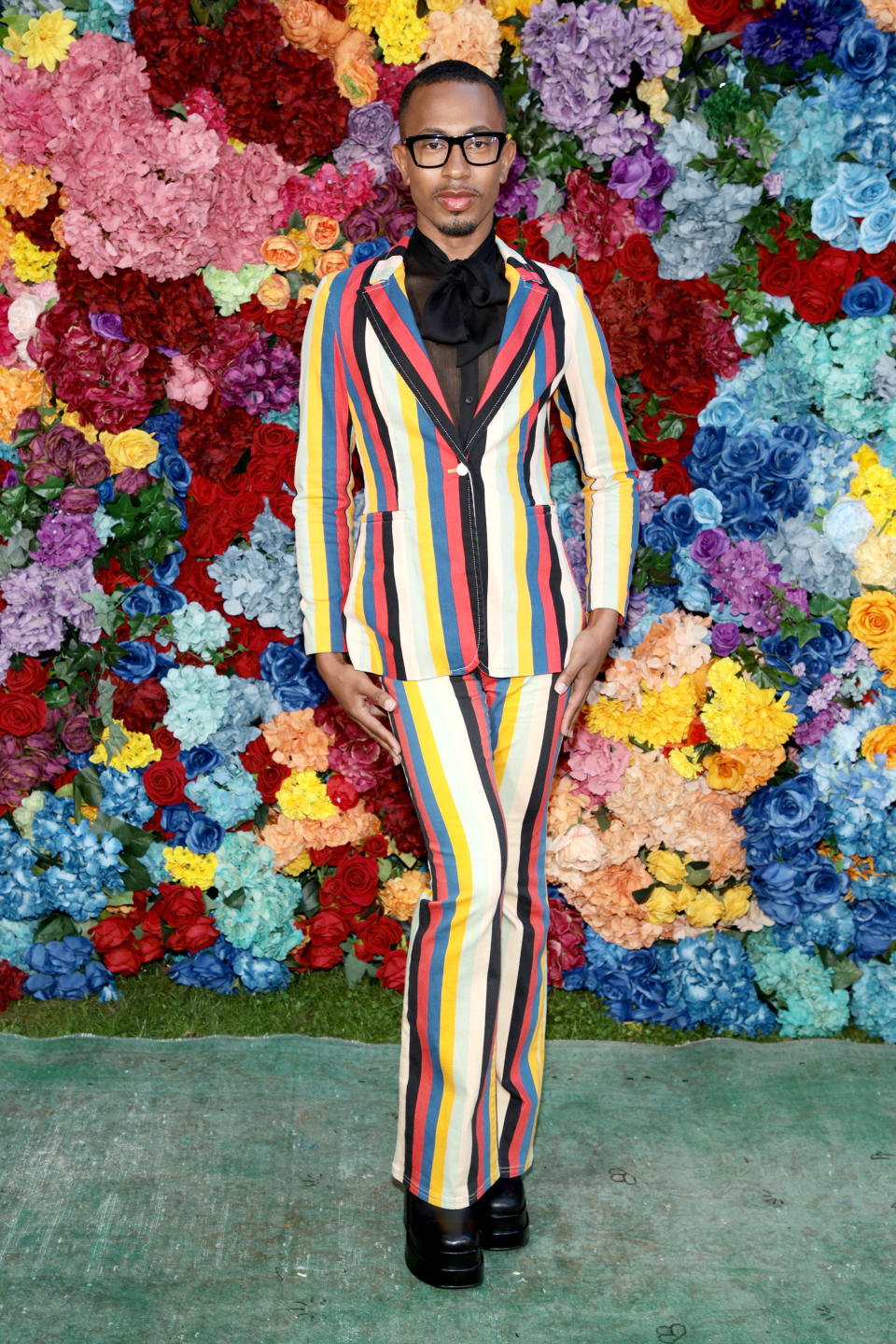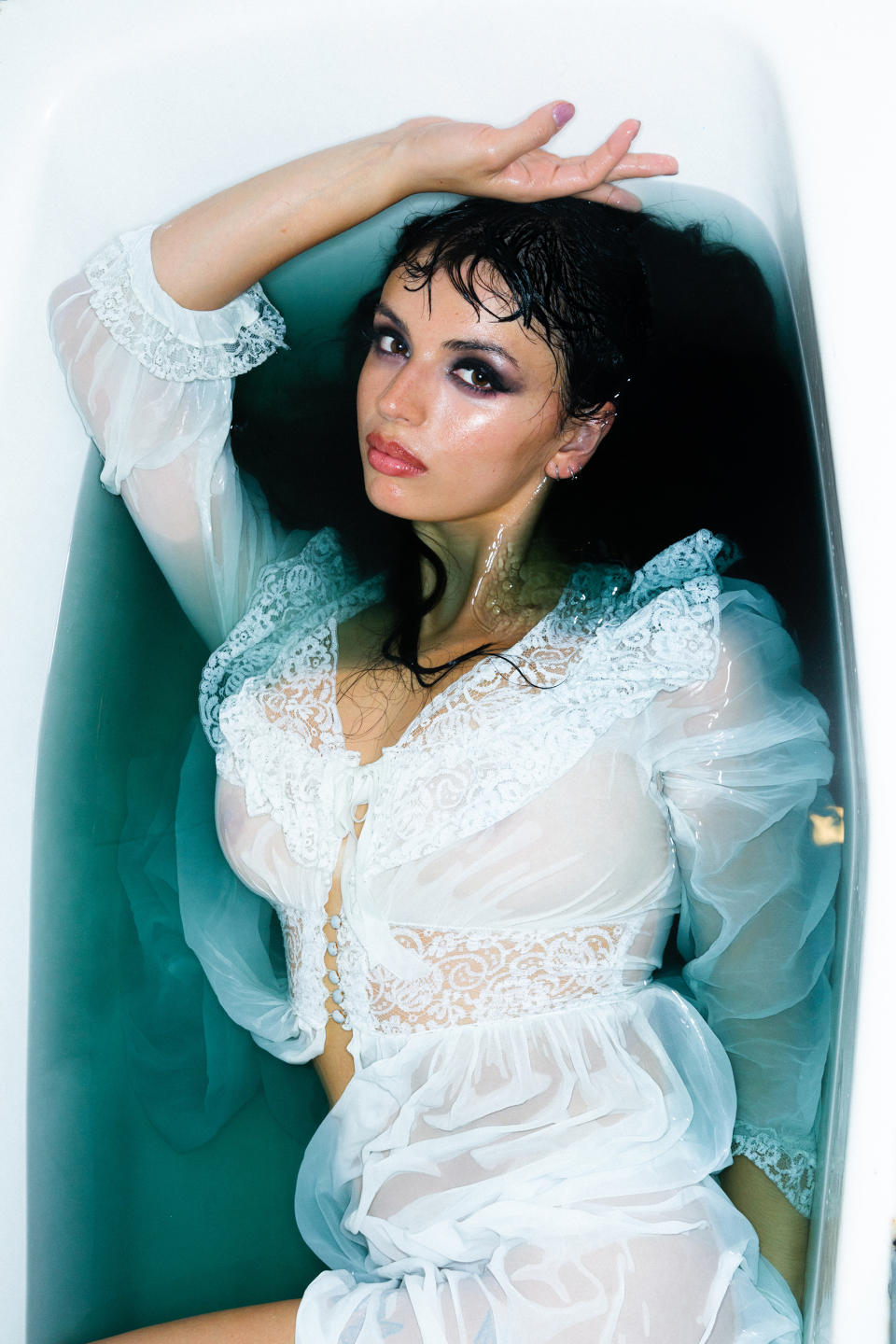‘Why do I need to proclaim something?’: LGBTQ+ Gen Zers redefine ‘coming out’
The Stonewall Inn in New York City has become a safe haven for queer people since the historic uprising that helped launch the movement for LGBTQ rights in 1969. According to NBC News, people have gathered there for political rallies, to protest Donald Trump’s immigration policies and more.
But thanks to the rise of social media in the 2000s, people born in the late ‘90s to 2010s — also known as Generation Z — can find support not just in person, but online.
LGBTQ representation in media has also never been stronger. In 2014, Laverne Cox became the first transgender person to appear on the cover of Time magazine, and she was also the first trans person to be nominated for an Emmy in an acting category. By 2021, one in every 5 films by a major studio included an LGBTQ character, according to a study released by GLAAD.
As queer people started to grace our screens more, things started to change on Capitol Hill. In 2012, former President Barack Obama announced he supported same-sex marriage. A few years later in 2015, the Supreme Court legalized same-sex marriage across the United States.
But even with these moments of progress, such as the repeal of the “don’t ask, don’t tell” policy in 2010, there's a long way to go.
Members of the LGBTQ community are still being targeted around the world. From 2020 to 2021, FBI data showed that the number of hate crimes committed against LGBTQ people increased 70%, per The Marshall Project.
Now, due to a surge in anti-LGBTQ legislation, the Human Rights Campaign declared its first-ever state of emergency for members of the LGBTQ community.
But it's also a community that has never been larger. Since 2012, according to data from Gallup, the percentage of Americans who self-identify as something other than heterosexual has more than doubled, NBC News reported.
This data when broken down by generation also shows that 1 in every 5 adult members of Gen Z identifies with the LGBTQ community. The key to this data is the term "self-identify," meaning the respondent felt comfortable sharing their identity in a survey at that point in time.
But what is it like to share that identity with others? TODAY.com is taking a look at the many different coming out stories of the Gen Z generation. Here's what they shared.
Luxx Noir: 'I kind of was, just, born this way'

At only 23 years old, Luxx Noir strutted onto the stage of “Ru Paul’s Drag Race” — and thrived.
Where Luxx went, confidence and catchphrases followed. Speaking to TODAY.com, Luxx says her confidence is the result of her “taking the power back from other people” and embracing who she is, and always has been.
“Something that was said by RuPaul stuck with me: ‘I was given what I have from some divine being.’ Once I heard it, I was like, ‘That does make sense.’ I can’t really explain why I’m the way I am. I kind of was, just, born this way. From a young age, I was like this.”
Luxx Noir simply is — which is why she wishes she never had to come out.
“I feel like coming out isn’t necessarily a requirement or something we should be pushing for. Straight people don’t ever need to come out as straight. This is me announcing I’m a queer person, because that makes it seem like something abnormal — and it isn’t.”
Plus, Luxx says, she was never hiding who she was. “It was pretty hard to hide all of this. It was like I was in a glass room. It was very obvious I was a queer child. I was a queer young adult,” she says.
But there was a conversation and it took place when she was in college. Surrounded by friends at an Applebee’s, she called her parents in West Orange, New Jersey and told them, “‘Listen. This is what it is.’ And they were like, ‘OK, we still love you.’ Then, of course, they were like, ‘Are you sure?’”
Luxx says they came around quickly, and now have a pride flag outside their house. “It’s corny but also a sweet gesture. I feel seen by them,” she says.
She calls that first coming out a “waste of time,” ultimately: “I could’ve just come home and brought home my boyfriend.” The more difficult coming out, she says, was when she revealed her drag persona. “Where I’m from, drag is not a think. They did not get it. They automatically were like, ‘OK, you’re transitioning.”
“They were worried but I don’t think it was their fault. They were taught to be worried. It’s a lot of unlearning and relearning,” she says. At first, she says, her parents were worried about the effect Luxx’s drag would have on her younger sister. “But she loved it. Like, she wanted me to do her makeup.”
Now that she’s a bona fide drag superstar, Luxx’s parents think she’s “Beyoncé level famous,” and are cheering her on. She hopes her story can be replicated in other households. “It shows other parents, ‘This is what can come out of giving a child love and support. They can be a shining star in the world, if you just allow them to do that.”
Kalen Allen: ‘I made it over the rainbow’

For many people, coming out can be a moment defined by deep fear. But Kalen Allen, 27, says it was more of a self-awakening. Instead of the phrase, “coming out,” he uses “liberation." It marked a switch from assimilation to acceptance.
“When I came out, I was able to unlock a lot of things that were within me that I had never even allowed to breathe,” Allen, 27, says.
Growing up, Kalen Allen didn’t “see the necessity of coming out.”
“For instance, straight people don’t have to tell you that they’re straight,” he says. “So why do I need to proclaim something in order to live my life?”
It’s a belief he still holds today — partially. But with his unique position as a multiplatform actor, comedian, influencer and former regular guest on “The Ellen DeGeneres Show,” he knows there are people watching.
“I think those situations come into play as well of who you are influencing, who may need you to come out in order to survive, to be able to learn your story, to know that they aren’t the only ones in the room,” he says.
He says his identity as gay was “never a secret,” but he pinpoints his first “public” coming out to an Instagram post he made when he was around 21 years old. Allen was en route to an event for LGBTQ youth in Salt Lake City, and one of his quotes about “living in your truth” was featured prominently on the official T-shirts for the event.
“I had never really said it, said it,” Allen says. “I was like, it doesn’t feel right for me to be telling these kids on this shirt to live in your truth and be your most authentic self … but me not do that in my own life.”
He posted a picture of himself next to drapes from a behind-the-scenes take of an old Hollywood-themed photoshoot, metaphorically and literally “peeling back the curtain,” he says. In the post, he shared that he was gay.
“My existence needed to be front row and center and needed to be loud and proud so that other people didn’t feel alone out in this world,” he says.
On the plane, he shut off his phone. For the rest of the event, he remembers feeling terrified of returning to the “real world” — "my body was there, but my mind wasn’t,” he says. Mostly, he was scared of hearing from his mom.
After coming out to her privately at age 16, which he says “didn't go well, either," he resolved to ignore all expressions of his identity.
“I won’t address it, you’ll never see me with a girlfriend, you’ll never see me with a boyfriend,” he says.
Then he received a text: His mother did not support the post. After several fights and arguments, he blocked her phone number.
“I was not in a place where I was willing to fight anybody to love me or to care for me,” he says.
The next few years were “really rough.” There were several holidays he spent completely alone because he didn’t feel comfortable going back home. But after his mom was diagnosed with breast cancer, they resumed their relationship at the beginning of 2021.
“That was something that happened to her that really opened up her mind to what was important,” he says.
It’s hard to reflect back on that time period. He’ll ask himself, “Why did I have to experience that?” But recently, he's looked at that past in the context of where is now.
“The cost that I’ve paid, I've already been given it back to me, tenfold,” Allen says. “These are the benefits that I’m getting in return for all of that heartache and trials and tribulations — and at the end of the day, I made it over the rainbow … that’s what I choose to bask in, that joy and that peace.”
So instead of offering advice for kids in a position like him, he wants to focus on the forces acting against queer kids, whether it's parents or the surge in anti-LGBTQ legislation in the U.S.
“My mother’s talked about my coming out and has been like, ‘Some things could stay between us,’” Allen says. “I told her, ‘No, because somebody needs to hear the cost of it all. So that they don’t want to pay that same price.’”
Rebecca Black: 'Making up for lost time'

For Rebecca Black, 26, Pride was always something “amazing.” Before she understood her own connection to it as a queer woman, it represented self-determination.
“Pride was this thing that even in high school, my friends and I would look at as this amazing escape, this world of freedom that we would get to go to and explore and how exciting that could be,” Black tells TODAY.com.
She attended her first Pride event when she was 21, more than 7 years after she went viral for the YouTube sensation “Friday.” At the time, she was just beginning to discover her identity.
“I didn’t even really go into it saying, ‘Oh, I know I’m a queer person,’” she says.
But afterwards, everything was finally “clicking.”
“The summer that I really came to terms with my own queerness, I spent every night in gay bars and gay clubs,” she says. “Not even drinking, but really feeling like I had this sense of understanding who I was.”
She says since her identity was something that she came into “later on in life,” so much of that summer was spent “making up for lost time” for all the experiences she missed out on as a teenager.
Looking back on some of her experiences in middle school and high school, she wants to tell her younger self, “Girl, you had a crush, and you didn’t even know!”
“A lot of things start to make sense in hindsight, which is sweet and fun,” she says.
During that period of realizing her identity, she struggled with “validating” herself.
“It’s very easy to be a queer or a bi- girl and for a group of people to immediately shoot you down as being ‘within a phase,’” she says.
The newly 26-year-old applauds those younger than her for the activism and communities they've started to build on platforms like TikTok, Twitter and Instagram to create spaces of “legitimate support” for queer people, at a time where their rights are continually under the threat of increasing levels of anti-LGBTQ legislation.
Taking a moment to look back, Black said if she could give her younger self advice, she’d say: “It’s OK to believe in yourself.”
“As a kid, you’re not going to make finite decisions for the rest of your life, but I do think it’s important to be able to develop a trust within yourself,” she says. “Even if it’s just for a moment, it can be true for a moment.”
It was only after she finally started trusting herself that she was able to go out and “practice gayness.” Now, that ability to trust her intuition has extended beyond just coming out.
“The freedom that comes with being able to choose and act on your own choices, whether or not it was the right or the wrong decision, that fear that you have over that … it really becomes irrelevant I think when you start to act on your own behalf,” she says. “It really is just about following that.”
TODAY.com is exploring what coming out means and how it’s changed from the perspective of members of the LGBTQ+ community across generations. In addition to the Gen Z, read what Baby Boomers, Gen X and millennials have to say.
This article was originally published on TODAY.com

